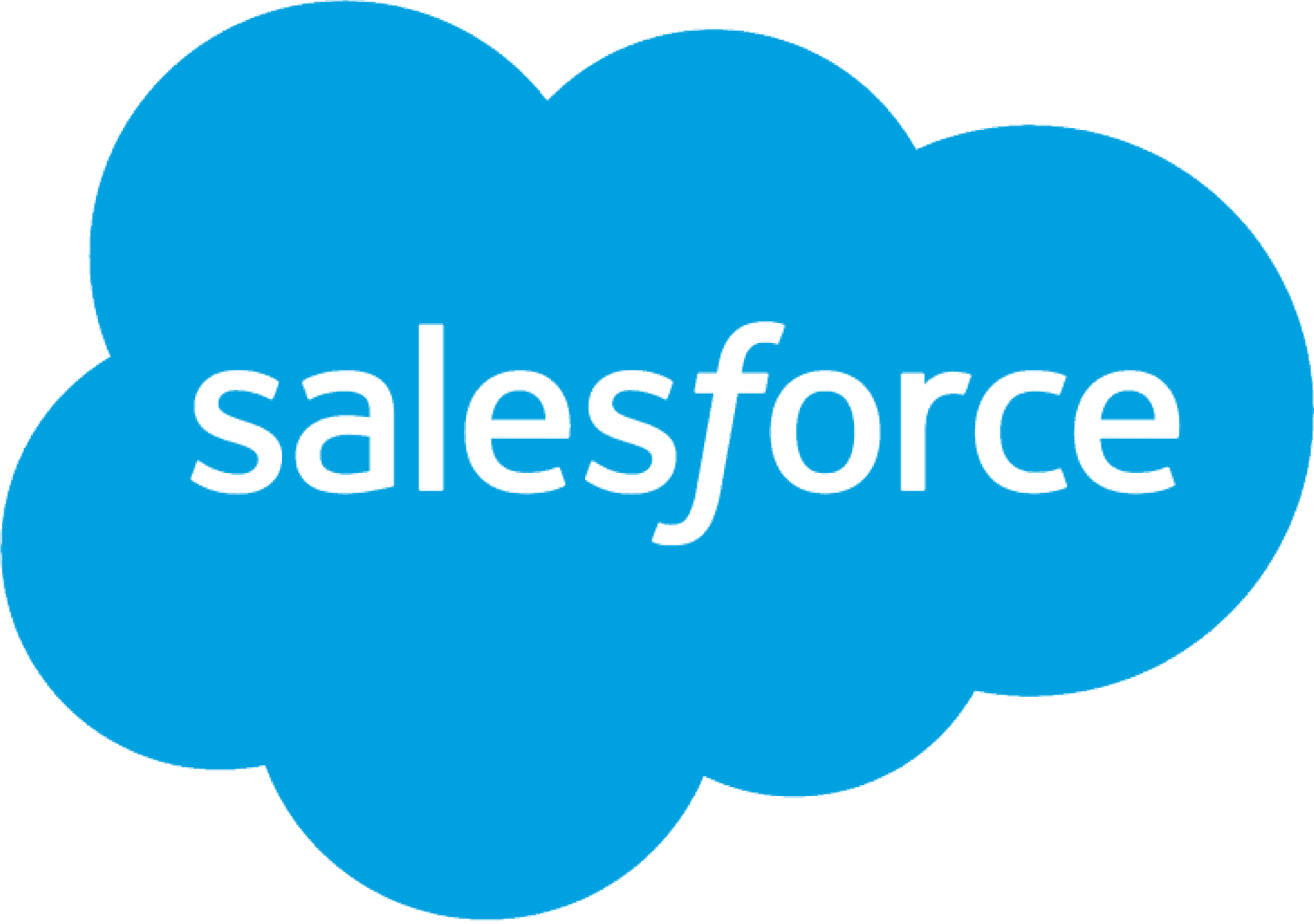There are many different CRM systems available for businesses to choose from. If you’re looking for the best option, act vs salesforce is a good place to start. But how do you know which one will work for your company? It’s important that you take some time now and figure out what features are most important to your business so that when it comes time to make an informed decision, you’ll be able to decide quickly and confidently.
What makes a great CRM?
A great CRM system should be able to provide tools that automate the sales pipeline. It should also have features for organizing and managing leads as well as customize activity reports according to how a company wants them reported on. CRM software should be easy to use and accessible through a variety of devices.
A great CRM system will help automate repetitive tasks such as customer outreach, recording client meetings, and compiling client information into one central location for all employees in an organization to access when needed. If the software is easy to use, all employees will be able to leverage the data stored within it. This makes everyone more efficient and increases productivity for any company that uses it.
What is Salesforce?

Salesforce is a customer relationship management tool, which is used by businesses to help them manage their relationships with clients. It helps users keep track of important information such as customer history and contact information in one organized, easy-to-access place. Salesforce also offers the opportunity for companies to connect with customers through social media platforms like Facebook and Twitter. This allows companies to update their customers on new products and promotions.
Salesforce is very beneficial for businesses because it streamlines many aspects of customer relationship management, CRM, into one easy-to-use interface that helps all employees stay up to date with information about each client. The Sales Cloud feature can be used by sales associates in order to get information about potential clients, making it easier to get in contact with them. Salesforce also offers the Service Cloud feature which streamlines communication between companies and their customers that are subscribed to a service plan by allowing users to be assigned tasks automatically when new cases are created.
What is Act?

Act! is a CRM system that streamlines the way companies store and retrieve data. It was first developed as an in-house software solution for Act! Software, Inc., but it is now used throughout all different kinds of businesses across North America. With its user-friendly interface, easy setup process, and free 30 day trial period (no credit card required), Act! is a great option for small businesses who are not ready to pay the monthly fees associated with Salesforce.
Act’s user interface has an open layout that gives users easy access to all of their data, making it simple and quick to find exactly what you’re looking for – whether that be one contact or several thousand. With this type of access, Act! users can quickly and efficiently manage their contacts in a way that is similar to the way they use email.
Accessing your data with an open layout also means you have more control over how your information appears when it’s time to print. Because all of the fields are easily accessible from anywhere in the program, adding columns for different printing needs is simple.
Act! gives you the tools to record, organize, and manage all of your contacts’ information in one place. With its contact-centric design that focuses on ease of use for both new users who are just getting started with CRM software as well as experienced professionals who have been using Act! for years, making changes to your database is simple.
Act! vs Salesforce Features Comparison
Comparing features is important because it allows you to see which CRM system will work best for your business. Act! and Salesforce are both powerful tools that can help businesses in a number of different ways, but they differ in the specific features offered by each program.
Contact and Account Management

Contact management is the process of tracking and recording data about people who have contact with your business. It includes key information such as name, phone number, email address, etc. This allows you to track all interactions that a client or potential client has had with your company so that you can follow up on leads and engage them at the right time in future marketing campaigns.
Account management is all about managing your clients. It includes everything that you do to keep track of the relationship with a client, such as communication history with them and any transactions between yourself and your customer. Account management also helps you upsell or cross-sell related products to existing customers in order to drive more revenue for your company by offering tailored products that your client will benefit from.
Act’s contact management system is very simple. It automatically syncs with your email, meaning that you simply have to add contacts into Act’s address book in order for them to appear on all of your devices. You can also attach files and notes to the contact which allows you to keep track of important information about a client or potential customer such as their contact details etc.
Act’s account management is also very simple. It allows you to track communication history with a client or customer, but it won’t allow you to keep track of any transactions between yourself and your customer.
Salesforce comes equipped with the most advanced contact and account management systems on the market today. Salesforce offers a variety of features that make tracking and engaging with clients much easier. Salesforce offers a CRM module that allows you to track all interactions that your client has had with your company, such as phone calls and emails, etc., allowing you to follow up on leads in the future.
It also comes equipped with an advanced analytics system called Einstein Analytics, which helps marketers segment their customers into categories based on their interests, allowing you to target your products more effectively.
In terms of contact and account management, Act and Salesforce are very different. While Act does not offer a CRM module for tracking all interactions with your clients, it has an easy-to-use contact management system that syncs with your email account making adding contacts simple.
Salesforce’s contact management comes equipped with many more features such as the ability to track communication history between you and your client and also allowing for the tracking of any transactions between yourself and your customer.
The account management system in Salesforce is even more advanced than their contact management offering a suite of features such as Communication history with clients, Upsell/Cross-Sell related products to existing customers, etc.
In conclusion, while Act! maybe easier to use, Salesforce offers a much more advanced contact management system allowing you to engage with your clients at the right time.
Lead Management

Lead management is the process of acquiring new leads, nurturing those leads into prospective customers, and eventually converting them to sales.
It’s important in marketing because it helps your company acquire more prospects or users by reaching out to a larger pool of people online through different channels such as social media ads, emails, etc. Furthermore, Lead Management also provides you with insights about the people you’re reaching out to, such as how old they are, where in the world do they live or what their job is.
Act’s lead management is very basic and doesn’t provide you with much information about your leads. It does come with a social media integration but unless you pay for the more expensive packages, it’s only going to be used on Facebook (which is probably not enough). Aside from that, Act’s Lead Management only tracks the basic information such as name, email, and phone number.
On the other hand, Salesforce’s Lead Management is incredibly powerful and detailed which makes it a better choice for companies looking to acquire more prospects or users online. This CRM system comes with an extensive social media integration (including Twitter) and allows you to track your leads’ activity and behavior. For example, you can track which social media websites they visit, what content do they like or how frequently do they interact with your company’s website.
Salesforce offers some cool features such as lead scoring which helps users prioritize their leads according to how likely they are to buy your products. Additionally, Salesforce also provides users with detailed profiles of their leads including the number of social media followers that each one has and demographic information such as age or gender.
In terms of lead management, Act! is a very basic CRM system that doesn’t provide you with much information about your leads. On the other hand, Salesforce offers some cool features such as lead scoring and detailed profiles of each one which makes it a better choice for companies looking to acquire more prospects or users online.
Opportunity and Pipeline Management

Opportunity management in marketing helps with the tracking of sales opportunities. By using this system, marketers can set up a pipeline which contains all their leads and accounts that they are working on to identify when something goes wrong or right during the process. Therefore, it is important for these marketers to choose a CRM system that can manage their opportunities and pipeline the best.
It’s essential for marketers to pay attention to this because it helps them track what they are doing wrong or right, which makes them learn how to improve themselves on an everyday basis. It also allows marketers to have an eye on their pipeline, so they know when something is going wrong or right. If a problem arises during the process of the opportunity management in marketing, marketers can deal with it accordingly and fix what needs fixing in order to progress further down in their sales funnel.
Pipeline management in marketing is very important as well because it helps marketers to know what they are doing wrong or right during the process. Moreover, it allows them to have an eye on their pipeline and see when something goes wrong so that they can fix it accordingly and progress down further with no problem at all. This CRM system will help marketers get through their pipeline much faster, allowing them to save time and money.
Act’s opportunity management in marketing allows marketers to manage leads, accounts and contacts. It also has a simple lead flow mechanism which lets marketers keep track of their sales process in an easy way. Apart from that, Act helps users with the creation of opportunities by using data sources across all modules including CRM, e-commerce, or call center applications.
On the other hand, Salesforce’s Opportunity management in marketing gives marketers the ability to manage their opportunities, set up a pipeline and track sales stages across all channels. It also has forecasting capabilities to predict future revenue by using different techniques such as statistical analysis or “what if” scenarios. Furthermore, it can be integrated with other applications through SFDC APIs which is another advantage for this CRM system.
Act’s Pipeline management in marketing allows marketers to manage leads, accounts and contacts. Apart from that, this CRM system focuses on helping marketers get through their pipeline by using different techniques such as forecasting or “what if” scenarios.
On the other hand, Salesforce’s Pipeline management in marketing gives users complete visibility of all opportunities across sales channels which helps them track what they are doing wrong or right during the sales process. Moreover, it has forecasting capabilities to predict future revenue by using different techniques such as statistical analysis and “what if” scenarios just like Opportunity management in marketing does for this CRM system.
In terms of Opportunity and Pipeline Management, Act and Salesforce both have their own unique advantages which make them outstanding CRM system options for marketers. For example, Act’s Opportunity management in marketing allows users to manage leads, accounts, and contacts with ease while its Pipeline management gives the ability to forecast future revenue by using different techniques such as statistical analysis or “what if” scenarios just like Salesforce’s Opportunity management does. On the other hand, Salesforce’s Pipeline management gives marketers the ability to track their pipeline and see when something goes wrong or right during this process while its Opportunity management in marketing has forecasting capabilities that predict future revenue by using different techniques such as statistical analysis and “what if” scenarios just like Act’s Pipeline does for it.
In summary, Act! and Salesforce are both great CRM system options for marketers who want to manage their pipeline or forecast future revenue. However, not all of them have the same capabilities which are why it’s important to do proper research before choosing any one of these two systems.
Security

Security is the prevention of damage from happening to a system. Security has been an issue since computers have been around and it is still a problem in today’s world where more important data, money, etc are being handled by technology. It is important because it makes sure that what is being inputted into the system is correct information.
Act’s security is good. There has been a lot of updates to make it safe and secure from hackers who try to get into the system through your company’s network. Salesforce is also known as being very safe because they have multiple levels of security that protect their database, which is called the Vibe Platform where all customer information is stored within. They are also PCI compliant(stands for Payment Card Industry).
Salesforce’s security is great. They have a very secure system where they are PCI compliant and encrypt all data in the Vibe platform which is their customer information storage center for security purposes. They handle security problems very fast and efficiently.
Act! has good security but Salesforce is more secure because they handle it faster, make sure everything is encrypted in the Vibe Platform where all customer data is stored, and are PCI compliant(stands for Payment Card Industry).
In terms of security, Salesforce has a better system to protect its customers from hackers who try to break into the Vibe Platform where all customer data is stored. Act also does this but Salesforce does it in more efficient ways making them safer than Act because they handle security problems faster and are PCI compliant(stands for Payment Card Industry).
Team Collaboration

Team collaboration is the process of sharing ideas, content and strategy to get everyone on board with your marketing plan. This means you need to develop an efficient workflow that works for both yourself and anyone else involved in the project so you can all promote together without doubling up work or missing out on key information. It is important because it allows you to maximize your efforts, value, and time.
Act’s team collaboration is a bit more in-depth than Salesforce, as it allows you to leave comments on tasks and create task dependencies between team members. This feature is great for streamlining the process of collaboration among teams that work together often or have multiple people working on one project at different times.
Salesforce’s team collaboration tool has been recently updated from Chatter to Groups. This allows users of Salesforce to collaborate on content, files, and projects more efficiently than ever before. It also lets you create a news feed that shows all activity from your groups as well as comments left by individual team members within the group.
Act’s team collaboration is a feature that allows you to create task dependencies between team members. This means tasks automatically move to the next person in the workflow once completed, without having to be manually moved by someone else.
Salesforce offers an easy-to-use group functionality called Groups. This feature allows you to create a news feed that shows all activity from your groups as well as comments left by individual team members within the group.
Salesforce’s group functionality makes it easy for teams and departments to communicate through project updates, task management, and service requests. You can also post updates and files, start discussions around specific topics and share content.
In terms of team collaboration, Act! and Salesforce has different advantages over each other. Act’s team collaboration is a bit more in-depth than Salesforce, as it allows you to leave comments on tasks and create task dependencies between team members. This feature is great for streamlining the process of collaboration among teams that work together often or have multiple people working on one project at different times. Salesforce’s Team Collaboration tool has been recently updated from Chatter to Groups. This allows users of Salesforce to collaborate on content, files, and projects more efficiently than ever before. It also lets you create a news feed that shows all activity from your groups as well as comments left by individual team members within the group. In terms of team collaboration, Act and Salesforce have different advantages over each other.
Reporting and Analytics

Reporting and analytics are a very important part of any business, especially in marketing. It can help you understand who your customers are and what products they want to see next.
Reporting and Analytics provide information about how people interact with their website or application: which pages/functions users visit, where do they leave the site from, which products do they purchase the most, and many more.
Reporting can help you focus your marketing efforts on what works best for your customers, allowing you to increase sales while saving a lot of time in this process. This way reporting helps marketers save money from bad decisions or campaigns that don’t work.
The reporting and analytics of Act! is very basic. It doesn’t allow you to add custom variables and it only exports reports in .xls format, which is not very user-friendly when you want to create charts from your data. Also, Act’s reporting and analytics are only available on the platform itself, which means you need to be online to access them.
On the other hand, Salesforce’s marketing cloud has a powerful team of analysts that help marketers with their strategy by using predictive analytics, machine learning, or email marketing. Their goal is to help marketers achieve better results through their reports and data-driven insights.
It’s clear that Salesforce has a lot more options than Act, even the free version of salesforces Marketing Cloud provides powerful tools like Pardot (marketing automation), Social Studio (social listening), and more. It’s a great choice for marketing teams that want to grow in the future, but if you are just starting or your business doesn’t require all of these features then Act can be enough.
In terms of reporting and analytics, Act! provides very basic information which might be enough for some teams, but if you are looking to have a more business-oriented approach Salesforce is the best solution.
Workflow Automation

Workflow automation is a system that helps marketers who have to track and organize tasks, assign them out to team members, communicate with one another about the progress of each task, and collaborate on projects. It is important to automate your marketing workflow because it helps you stay organized, efficient, and keep track of the tasks that need to be done by yourself or others. This is especially important in fast-moving campaigns where time can be a limiting factor if things are not running smoothly.
Act’s workflow automation is not nearly as strong as Salesforce’s. Act does allow you to create and assign tasks, but it has a very basic interface that is unlikely to meet the needs of most marketers. It also lacks some features such as custom or automated email alerts for when certain milestones are reached during workflow processes like in Salesforce. One feature it does have over Salesforce is that it allows you to attach files or documents to tasks, whereas in Salesforce these need to be stored separately.
Salesforce has better workflow automation than Act because of its more complex interface and features like automated alerts when milestones are reached during workflows. The main difference between Act and Salesforce is that Act’s workflow automation capabilities are nowhere near as developed. It has a very basic interface, lacks the ability to attach files or documents to tasks, does not allow you to create automated alerts for milestones during workflows like in Salesforce, and only allows teams of two users maximum.
In terms of workflow automation, Act is simply no match for Salesforce. Act’s interface and capabilities are nowhere near as developed, it has a very basic workflow process that lacks features like attaching files to tasks or creating automated alerts at milestones during the workflow processes, and only allows teams of two users maximum.
Artificial Intelligence

Artificial Intelligence (AI) is a branch of computer science and engineering that focuses on creating intelligent machines to complete human tasks. AI is already being used in a variety of ways and is expected to play an even bigger role over the next few years. It is important in marketing because it allows companies to automate tasks that are otherwise tedious. This can be helpful in almost any industry but is particularly useful when there is a lot of data involved since AI algorithms allow for the quick processing and analysis of information.
The artificial intelligence of Act offers to its users is excellent. It has pre-built integrations with over 30 other apps so that it can be used as a hub for different aspects of marketing automation, from lead acquisition and nurturing to social media management and email campaigns. In addition, Act also offers the ability to build custom code within their platform as well as access to an API for an even deeper level of customization. Act’s AI is also powerful because it allows users to analyze their data by giving them access to metrics, predictive analytics, and machine learning tools.
The artificial intelligence offered in the Salesforce platform has been designed with customer success in mind so that companies can understand their customers better and come up with strategies to drive sales. The Salesforce AI platform is also built using the power of data, which means that it has an excellent understanding of customer behavior while also giving users access to detailed analytics on opportunities within each company.
Act’s artificial intelligence is a great choice because its different features can be used to achieve better results than what you would get on the Salesforce platform. Act’s AI is excellent for lead management and sales process automation, which allows companies to identify new opportunities while also keeping track of their existing customers.
Salesforce’s artificial intelligence is a good option because it has been designed with customer success in mind. The Salesforce AI platform is excellent for companies that want to build targeted campaigns based on the insights they get from their data analytics, which makes it easier to increase sales and conversions.
In terms of artificial intelligence, Act and Salesforce are very different options. Act! is a great choice if you want to have complete control over your marketing automation strategy while also being able to access advanced features that give more insights into what makes customers tick. On the other hand, Salesforce’s Artificial Intelligence platform excels when it comes to helping companies understand their customers better so that they can come up with more effective strategies to increase their sales.
Customization

Customization is the extent to which you can modify and adapt a product or service.
Marketing has become more and more about customization, as it is an effective way of staying competitive in today’s market. Customization also allows for improved customer satisfaction; if customers know exactly what they want, then companies should be able to give them that. From this point of view, it is easy to see why marketing has largely shifted towards customization.
Act’s customization is limited, which is a result of its smaller user base. Act! allows for the creation and modification of contacts and companies in their system, but does not go beyond that point. Aside from that, it does not allow for much flexibility.
Salesforce, on the other hand, allows a wide range of customization options. Salesforce has its own programming language called Apex which can be used to create custom applications within their system. This is one of the primary reasons why they have such a large user base; companies like using them because they provide a greater degree of customization.
Salesforce has an extensive customization ability due to its larger market share; it can be modified nearly any way you see fit. Salesforce also provides step-by-step guides on how to do just about anything in their system, which makes customization that much easier.
In terms of customization, Act is more limited while Salesforce has the edge. This allows for better customization in terms of features and functionality, which is one of the reasons why it’s so widely used by companies today.
Mobile CRM Capabilities

CRM capabilities are the different functionalities of a CRM system. They are widely known as “what” capabilities and they help companies to understand what services the software gives them, but also how these services can contribute to their business. It is important to consider what your business needs from a CRM system and which functionalities will be useful to you. If the software has more capabilities than required, it can mean that is difficult to navigate through them all, thus making its use time-consuming. On the other hand, if there are not enough capabilities your company might have problems because of this lack of functionalities.
A CRM system, or Customer Relationship Management software, is an application that allows companies to manage their leads or contacts from the moment they get in touch with them until when they become actual customers. In other words, these systems help businesses keep track of their sales process. CRM systems usually offer capabilities such as contact management, lead generation, and even email marketing so that companies can target the right people at the right time with personalized messages based on their behavior.
Act’s CRM capabilities are divided into three main categories: Sales, Marketing, and Customer Service. Regarding sales capabilities, you can find out if a lead is an opportunity or not, perform activities such as tasks and follow-ups, manage your contacts with ease through custom fields among other things. When it comes to marketing functionalities of Act’s CRM solution there are some very interesting capabilities such as lead scoring, segmentation, email marketing, and campaign management. For customer service capabilities there are features like case management, knowledge base articles manager among others that will help you to solve your customers’ issues easily.
Salesforce offers very comprehensive functionalities because it has been designed for professional use since the beginning. These functionalities allow companies to track their sales process, manage tasks and follow-ups as well as contacts from these processes. In addition, it offers capabilities for marketing such as lead scoring or email marketing campaigns among others features that will help you improve your customer service with ease.
In terms of CRM Capabilities, Act and Salesforce offer some interesting features according to your business needs. Act’s CRM solution is designed for professional use and offers capabilities such as lead scoring, email marketing campaigns, or even cases management among others that will help you improve your customer service with ease. If your focus is on sales process management then you might want to go through all the possibilities offered by Salesforce’s CRM solution.
Self-Service Portals

Self-service portals are portals where users can interact with the system on their own, without requiring direct support from a business or IT. They are important because they allow companies to save money by not having to hire additional employees and empower customers by offering them control over certain aspects of your company’s processes (more in the next paragraph).
Act’s self-service portals are only available to customers, while Salesforce’s are for both your company and customers. Because of this, Act is ideal when you want control over who gets access to the portals but not so good if you would like a more hands-off approach with less training required in order to manage them.
Salesforce, on the other hand, is great because it allows companies and their customers full control over the portals, but it’s not ideal if you want to limit access to certain groups of people.
Act! has a low rating when it comes to customer support as they only offer email or phone ticketing options which can sometimes take up to two days before getting a response. Salesforce, on the other hand, offers phone support which is available 24/seven along with email and chat options.
In terms of self-service portals, Act and Salesforce are on two opposite ends of the spectrum. Act! is ideal when you want control over who gets access to these portals while Salesforce is great if you would like a more hands-off approach with less training required in order to manage them. Customer support is another key difference between the two, as customers have low ratings for Act’s customer support options while Salesforce has high ratings with various customer service options.
Frequently Asked Questions

Which one is right for your business?
Salesforce is best for larger companies with a massive amount of data to manage because it’s a feature-rich and heavily customizable system.
Act! is best for small business owners looking for an efficient, streamlined way to keep track of their relationships and communication without too much overflow or messiness. Because it’s simple, it doesn’t cost as much and works well for entrepreneurs.
How to perform CRM migration automatically?
CRM migration can be very frustrating if not done properly. And the worst part is that you cannot undo it once completed, so make sure to choose a reliable CRM migration service provider or do it by yourself.
There are many different methods for migrating data from one system into another but depending on your case some of them can be more suitable than others. For example, you can migrate data into Salesforce manually if it’s just a few records. However, if the number of contacts is more than 2000 then this process will take too much time and effort.
The best way for performing CRM migration automatically is using copying or syncing features that are available for most CRM systems on the market. The main reason why you should use a sync feature is that it will save your time and money as there won’t be any need for hiring additional staff or outsourcing to other companies.
The last way of migrating data from one system into another involves installing connector modules. These modules are available for different CRM systems and allow connecting them to each other. This method is often chosen by companies that use various software because it allows managing all of the data in one place, rather than having several disconnected apps.
By using connector modules you can easily migrate your company’s existing data into Salesforce. That being said, you should keep in mind that this method is usually used by companies that have already made a switch to other software because it often involves coding and using databases.
All three automatic migration methods mentioned above are great but they all require the use of professional tools which can be very expensive. Luckily, there is a way to do it by yourself even if you don’t have coding skills as the most popular apps on the market offer free tools for users which allow migrating contacts from Act into Salesforce manually.
Which is the Winner?
Between Act! and Salesforce, the best CRM system is Salesforce. It offers more CRM capabilities and is easier to use than Act!, which has fewer CRM features and a user interface that can be confusing for beginners.
A user can also compare the two CRM systems in much more depth by looking at individual features. For example, Salesforce has better analytics capabilities than Act!, and it is much easier to track contacts’ interactions with your company’s social media accounts via Salesforce. On the other hand, Act!’s call center module is better than Salesforce’s call center module.
In the end, Act! is a reasonable CRM system with some useful features for small businesses and salespeople. However, Salesforce provides much more value in terms of its industry-leading customer relationship management capabilities, making it a better choice than Act!.





